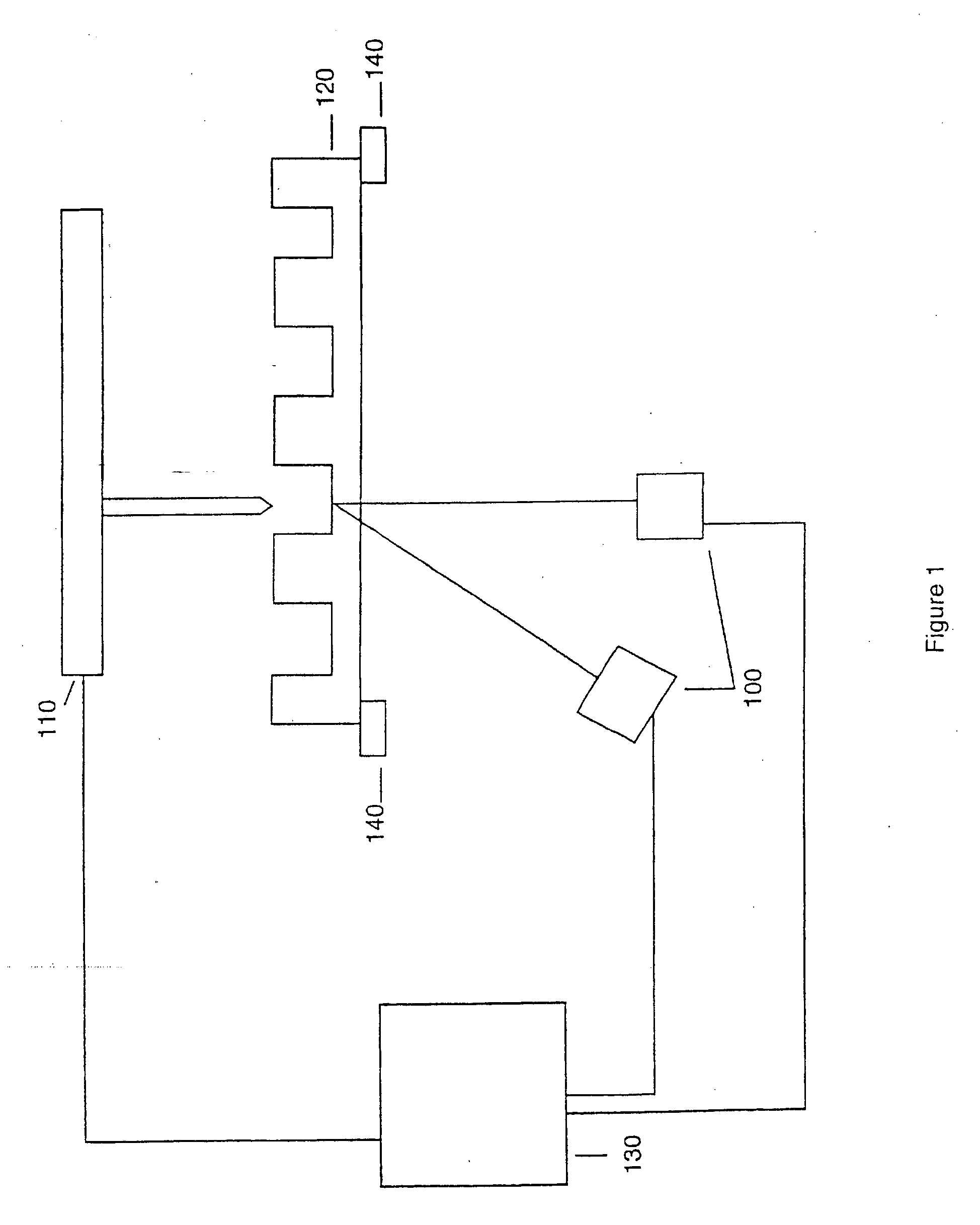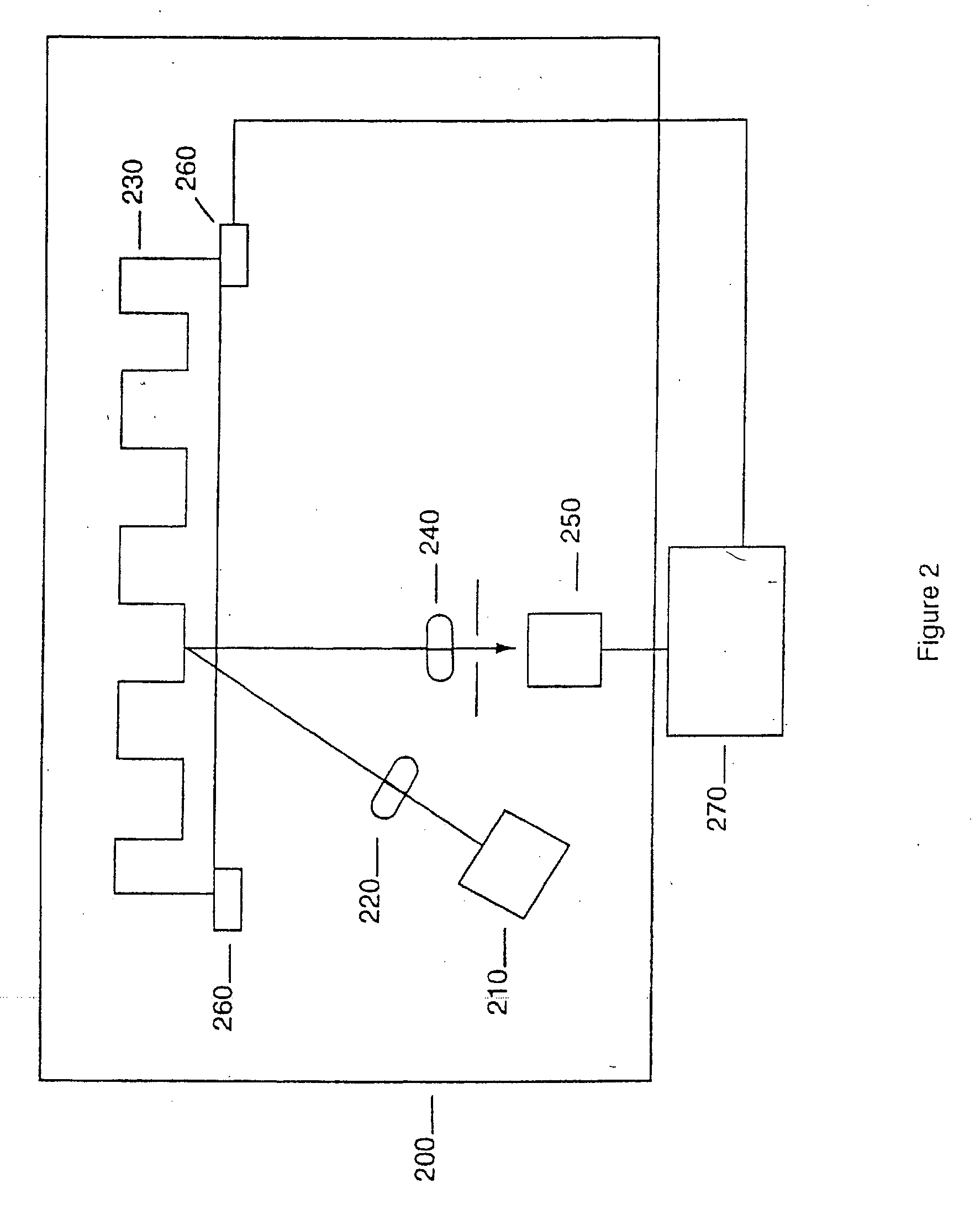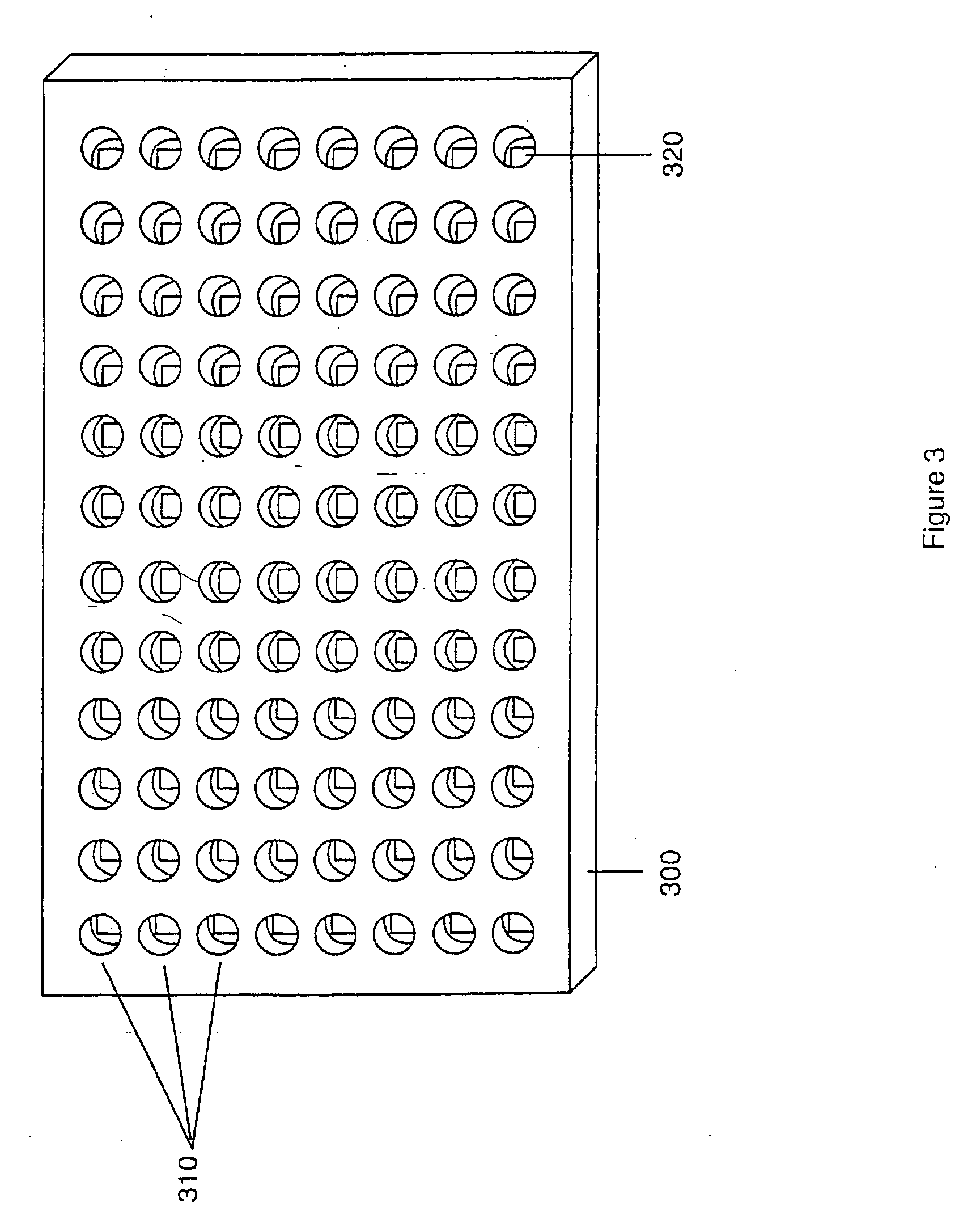Methods for concurrently processing multiple biological chip assays
a technology of biological chips and assays, applied in the field of concurrent processing of multiple biological chip assays, can solve problems such as inability to adapt to handling multiple samples simultaneously
- Summary
- Abstract
- Description
- Claims
- Application Information
AI Technical Summary
Benefits of technology
Problems solved by technology
Method used
Image
Examples
Embodiment Construction
I. Definitions
The following terms are intended to have the following general meanings as they are used herein: A. Complementary: Refers to the topological compatibility or matching together of interacting surfaces of a probe molecule and its target. Thus, the target and its probe can be described as complementary, and furthermore, the contact surface characteristics are complementary to each other. B. Probe: A probe is a surface-immobilized molecule that can be recognized by a particular target. Examples of probes that can be investigated by this invention include, but are not restricted to, agonists and antagonists for cell membrane receptors, toxins and venoms, viral epitopes, hormones (e.g., opioid peptides, steroids, etc.), hormone receptors, peptides, enzymes, enzyme substrates, cofactors, drugs, lectins, sugars, oligonucleotides, nucleic acids, oligosaccharides, proteins, and monoclonal antibodies. C. Target: A molecule that has an affinity for a given probe. Targets may b...
PUM
| Property | Measurement | Unit |
|---|---|---|
| diameter | aaaaa | aaaaa |
| area | aaaaa | aaaaa |
| feature size | aaaaa | aaaaa |
Abstract
Description
Claims
Application Information
 Login to View More
Login to View More - R&D
- Intellectual Property
- Life Sciences
- Materials
- Tech Scout
- Unparalleled Data Quality
- Higher Quality Content
- 60% Fewer Hallucinations
Browse by: Latest US Patents, China's latest patents, Technical Efficacy Thesaurus, Application Domain, Technology Topic, Popular Technical Reports.
© 2025 PatSnap. All rights reserved.Legal|Privacy policy|Modern Slavery Act Transparency Statement|Sitemap|About US| Contact US: help@patsnap.com



